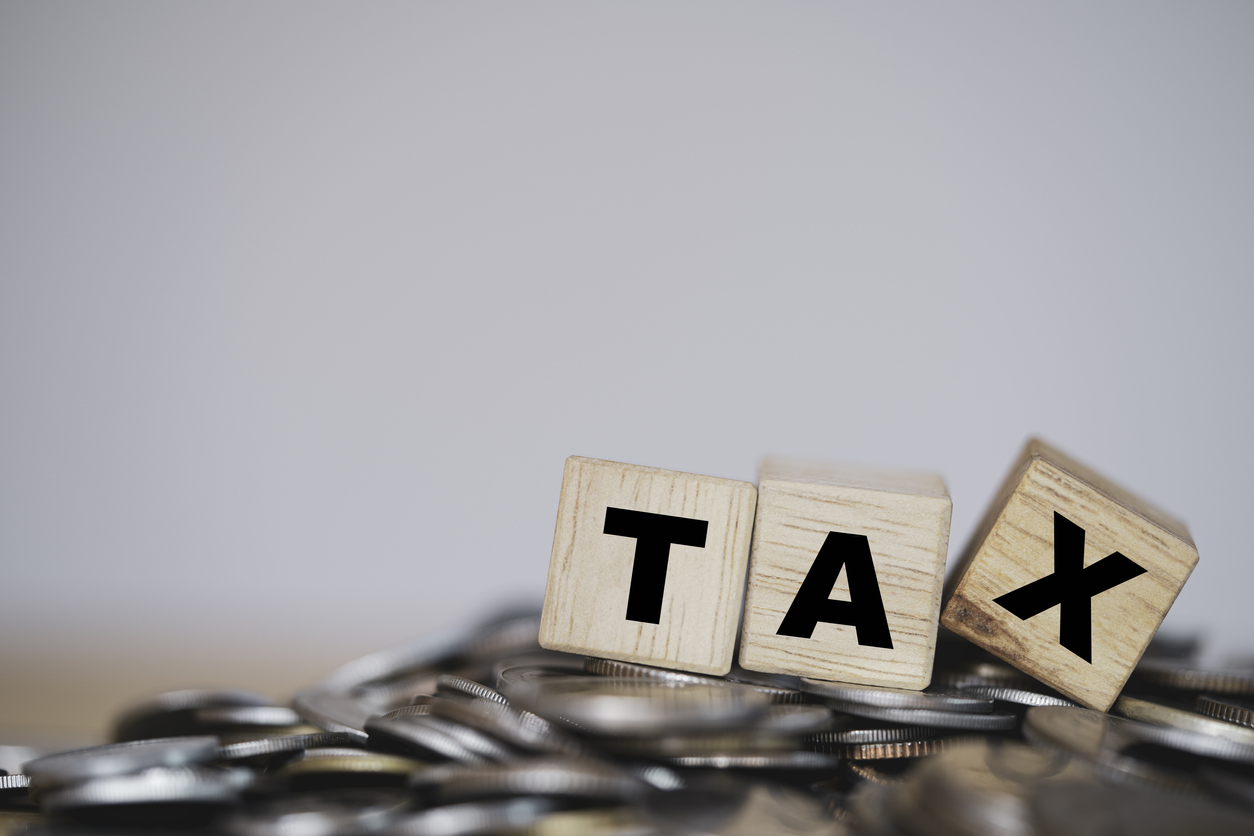Calculated Risk: A $75M Award Adds Urgency to Pre-Judgment Interest Considerations
28 July, 2015
-
Ephraim Stulberg
-
Canada
Pre-judgment interest is often the last thing litigants ponder. A recent award of $75 million in pre-judgment interest in Eli Lilly v. Apotex, 2014 FC 1254 (“Cefaclor”) may change that.
Cefaclor involved the infringement of patents for an antibiotic. Damages of $31M were awarded for the period 1997 to 2000. While the calculation of damages presented many interesting issues, it is the treatment of pre-judgment interest that may prove to be of broader importance. Although the pre-judgment interest prescribed under Ontario’s Courts of Justice Act for Q1 of 1997(when the infringement action was brought) would have been simple interest at 3.3%, the trial judge awarded interest on Lilly’s lost profits using an average compound interest rate of approximately 8.5%.
The Theory
Pre-judgment interest is interest added to a plaintiff’s monetary award, calculated from the date of wrongdoing to the date judgment is pronounced. There are two ways of viewing pre-judgment interest.
The first is compensatory. Under this view, pre-judgement interest compensates the plaintiff for not having the damage award between the time it was harmed until the time damages were determined.
The second is restitutionary. Pre-judgment interest can be viewed as the amount the defendant must disgorge to the plaintiff as a result of having, on an interest-free basis, wrongly withheld money to which the plaintiff was entitled.
Note that these two rationales may not yield identical interest rates. For example, if the plaintiff’s borrowing cost is 6% but the defendant’s is 8%, the benefit to the defendant of holding the disputed funds in the period prior to trial is greater than the cost to the defendant in foregoing those funds.
In Ontario, the relevant statute pertaining to pre-judgment interest is s. 127 and 128 of the Courts of Justice Act. The pre-judgment interest rates set out in those sections will typically not fully reflect the reality of either the compensatory or restitutionary theories. This is so for two main reasons:
- Rate – the prejudgment interest rate is based on “the minimum rate at which the Bank of Canada makes short-term advances to Canadian banks”. This is a very low interest rate that reflects very little in the way of a premium for default risk.
- Method – the interest is calculated as simple, not compound interest.
In Cefalcor, Zinn J. picked up on many of the themes invoked by the Supreme Court in Bank of America Trust v. Mutual Trust Co. 2002 SCC 43, which had ruled that in certain circumstances it may be appropriate to a) depart from the statutory prejudgment interest rates, and b) award compound interest. He examined several methods for arriving at a reasonable compound interest rate:
- Treasury bills. These are short-term instruments issued by the government, and are essentially risk free.
- The plaintiff’s cost of borrowing. The rationale of this metric is compensatory; it looks at the plaintiff’s lost profits as funds that could have been used to pay down the plaintiff’s debt.
- The defendant’s cost of borrowing. This was a measure that was advocated by the plaintiff in Merck & Co., Inc. v. Apotex Inc., 2013 FC 751 (CanLII)(“lovastatin”), and received favourable comment by Snider J. as being restitutionary; it is a sound measure of the defendant’s benefit to be disgorged. Less intuitively, it can also be viewed as a measure of the plaintiff’s loss, if one considers that the plaintiff has been deprived of the difference between a market rate of return on lending funds to the defendant (or a firm with a similar default risk profile).
- The plaintiff’s Weighted Average Cost of Capital. This is the rate of return that investors in the plaintiff would require on their investments, based on the overall risk profile of the company. Zinn J. rejected this option – as did Snider J. before him in lovastatin – noting that WACC was a measure of what firms expect to earn on their capital, not what they actually do earn.
Zinn J. rejected all of these options. Instead, he calculated the interest rate with reference to the plaintiff’s actual “profit margins” during the damages period. (Though it is not clear from the decision, it is possible that Zinn J. was referring to the plaintiff’s return on capital. Profit margins are calculated by taking a firm’s profits and dividing by its revenue; they say nothing about the profit a firm earns as a percentage of its invested capital.)
This choice of metric is noteworthy, insofar as it tacitly assumes that as a result of not having access to the damages award, Lilly may have been required to forego additional profit-making ventures. While this assumption may be valid for smaller businesses without ready access to capital, it may be less so for large publicly traded companies such as Lilly, who have ready access to public debt and equity markets.
Conclusion
For large damages awards extending over lengthy periods of time, the issue of prejudgment interest can loom larger than the damages award itself. It behooves counsel (and their financial experts) to present arguments that are both conceptually sound and supported by evidence.
By Ephraim Stulberg. Published in the May 29, 2015 edition of Lawyers Weekly.
The statements or comments contained within this article are based on the author’s own knowledge and experience and do not necessarily represent those of the firm, other partners, our clients, or other business partners.
Authors

Ephraim Stulberg
B.A, M.A, M.BA, CPA, CA, CBV, CFF, Partner/Senior Vice President
- +1 416.366.4968
- estulberg@mdd.com
- Toronto, ON, Canada
Services
Articles
Relevant Articles
Our experts are extremely knowledgeable about thier subject areas and often write educational material and commentary on topical issues they come across.
Benefits of Hindsight when Quantifying Financial Losses
Claims for economic losses arising out of failed real estate developments can be complex to prove, requiring evidence concerning many different aspects of the proposed construction project. There can also be different approaches to quantifying losses. Both of these issues...
ESG Disputes and Business Valuation
Environmental, Social and Governance (“ESG”) factors have gained increasing importance in recent years as society has become more aware of how corporate conduct affects stakeholders, the environment and humanity at large. From issues such as climate change to socially responsible...
Business Valuation, Growth Rates and Climate Change: a Case Study of Vail Resorts
This past summer’s heatwaves and wildfires served for many as alarming reminders of climate change. Hotter summers, colder winters, and more hurricanes are amongst the symptoms of a changing global climate[1]. These climatic effects will impact different businesses in different...
Lost Profits Measurement in the Cannabis Industry
What used to be considered an illicit drug in most countries is now a decriminalized plant with some medicinal potential. Cannabis is in the midst of a global transformation into a major industry with massive investment and growth potential. Canada...
Claim Considerations Related to the Beirut Port Explosion – Part 2
On 17 October 2019 large numbers of protesters began appearing in Martyrs Square, Nejmeh Square, and Hamra Street, as well as many other areas of Beirut and throughout Lebanon. The reasons for the protests are wide reaching from a social,...
Claim Considerations Related to the Beirut Port Explosion – Part 1
In this two-part series, we write about the claim considerations related to the Beirut port explosion on 4 August 2020. On 4 August 2020 at approximately 18:00 local time, an explosion measuring 3.3 on the Richter scale ripped through Beirut...
COVID-19’s Impact On Business Valuation
This is the second blog post co-authored by MDW Law Partner, Christine Doucet, and MDD Forensic Accountants Partner, Jarrett Reaume, addressing various aspects of COVID-19’s impact on business owners and family law issues. Their first blog post was “Guideline Income...
Is Kylie Jenner a Billionaire, or Even Close? Part III
I hope this will be the final installment in this series, but one never knows. Back in the summer of 2018, I wrote a short piece questioning a sensational Forbes magazine article claiming that Kylie Jenner was worth $1B, based mainly...
Is Kylie Jenner a Billionaire, or Even Close? Part II
A little over a year ago, I wrote a short blog post taking issue with a Forbes magazine article that had concluded that Kylie Jenner's net worth was around $900 million. In light of last week’s news that Coty Inc., a publicly traded cosmetics firm, is...
How to Calculate Losses Under Business Interruption Coverage
In this article we provide a brief overview of how to calculate losses under business interruption coverage. Broadly speaking, business interruption (“BI”) insurance coverage is meant to indemnify the insured for the loss of profit it suffers as a result...
Buying Shares in an NFL Player? Business Valuation Principles Still Apply
In my last post, I argued that an investor in Kylie Jenner’s cosmetics company was essentially investing in Ms. Jenner’s personal brand, and that the earnings stream for that brand was of a finite life. The post got me thinking:...
Forensic Accounting Liability Exposures
The below article first appeared in THE STANDARD, New England’s Insurance Magazine. It features excerpts from a presentation given by MDD partners Paul McGowan, CPA, CVA and Jon Ducey, CPA, CVA on the topic of liability claims and other key...
Economic Damages from Personal Injury: A Forensic Accountant’s Perspective
Regrettably, individuals can experience a temporary or permanent diminishment in their ability to perform certain functions due to a tortfeasor. Forensic accountants and economists are regularly retained in matters involving the injury or death of an individual for the purpose...
Is Kylie Jenner Really a Billionaire, Or Even Close?
A few weeks ago, Forbes created a social media storm when it proclaimed that Kylie Jenner was poised to become the world’s youngest self-made billionaire. Many thumbs were worn out debating the appropriateness of the term “self-made”, and apparently a GoFundMe page...
Caribbean ‘vacation’ for CAT claims
As a global forensic accounting firm, we at MDD have a “boots on the ground” mentality when it comes to quantifying economic damages for catastrophe (“CAT”) claims. The busy hurricane season in 2017 meant that I, along with many of...
Valuing a Franchise System
Valuing a franchise system, or “franchisor”, is in many ways very similar to the valuation of any other type of business; it is a function of the forecasted levels of cash flows that the business will generate, and the risk...
How Much Is Your Business Worth?
As a Chartered Business Valuator (CBV), almost every business owner I meet wants to know the answer to this question: “How much is my business worth?” There can be many reasons for asking this question: they may be planning to...
Mining Claim – All Is Not As It Appears
In this briefing we focus on mining claims, and share our knowledge and technical expertise on one of the loss measurement issues regularly encountered in mining claims, production bottlenecks. What you will learn from reading the article include: How the...
What Type of Business Valuation Do I Need?
In my previous article, I discussed the critical need for business owners to have their business valued by a professional appraiser. In this article I will discuss the two types of business appraisals that you might want to consider. Calculation...
Should I Have My Business Valued?
What's so important about having a valuation of my company? Small business owners spend most of their time IN THEIR business and not ON THEIR business. Further, they view expending money on getting a professional valuation performed as a completely...
Identifying and Measuring Short Duration Business Interruption Losses
What have we really lost? One of the most common issues that arise from short-duration interruptions, those measured in days as opposed to weeks or months, is whether the business actually suffered a permanent loss of revenue or whether the...
Contaminated Products Insurance Claims: How to Check the Costs of a Product Recall
The number of food product recalls reported in the UK through the FSA (Food Standards Agency) rose 78% in 2015. With many UK businesses operating internationally, a product recall situation can impact many countries and cost millions of pounds in...
Business Interruption: Complex Interdependencies
As business structures become more complex, companies often need more sophisticated insurance products to properly manage their business interruption risks. For example, narrow vertical integration makes risk management more difficult and increases the demands placed on insurers regarding correct risk...
Catastrophe Events and Business Interruption Insurance
In the event of a devastating catastrophe (“cat”) be it an earthquake, hurricane, flood, or tornado, the first and foremost priority is to ensure the safety all the people involved. Once this has been established, business owners can then begin...
Business Valuations & Why It Pays To Use Genuine Experts
The Basics Assets have value if they will give rise to future economic benefits. For businesses, these future economic benefits take the form of either the expected net income stream or the amount that could be realised in the short...
A Primer To Accurately Calculating Lost Profits
What Are Lost Profits and How Are They Calculated? Lost profits are economic damages caused by a disruption in business operations. The damages can be the result of a variety of factors, some of which include patent infringement, breach of...
Gift Cards and the Illiquidity Discount – A Valuation Perspective
With the busiest season of the year for retail sales upon us, you are no doubt wondering what to buy for that special someone. If you’re reading this blog – and I have every reason to believe you are –...
I Lost My Customers and It’s Your Fault!
In Schwartz Levitsky Feldman LLP v. Werbin, 2015, an action was put forward by Schwartz Levitsky Feldman (SLF) claiming loss of profits due to the departure of Mr. Werbin. The firm contended that they purchased Werbin’s clients when they purchased...
Foreign Exchange Issues in Damage Quantification: Part II – Applying the Concepts
In the previous post, we presented a basic framework for analyzing the impact of foreign exchange fluctuations on quantifying financial remedies. We argued that the treatment of foreign exchange should be consistent with the principal underlying the financial remedy being awarded;...
Foreign Exchange Issues in Damage Quantification: Part I – Basic Concepts
International trade is an increasingly important part of the Canadian economy, as this picture clearly shows: As a result, it is not uncommon for litigation to involve the quantification of financial remedies across multiple political and monetary boundaries. How does...
The Dividend Double Count
In this post, I touch on a common error I encounter in dealing with a financial analysis of multiple companies owned by the same group or individual. I call this error the “dividend double count”, for reasons that will become...
Adding up the Damage: Lost Profits vs. Business Value
When a business is destroyed as a result of wrongdoing, there are two commonly used methods by which the plaintiff’s damages may be measured. One method is to appraise the value of the plaintiff’s business at the date of loss;...
Court Breaks with Apportionment
The case of Varco Canada Limited v. Pason Systems Corp., 2013 FC 750 (CanLII) involved an award of over $52M based on an accounting of the defendant’s profits. Perhaps more importantly, the decision sheds light on a number of conceptual...
Calculated Risk: A $75M Award Adds Urgency to Pre-Judgment Interest Considerations
Pre-judgment interest is often the last thing litigants ponder. A recent award of $75 million in pre-judgment interest in Eli Lilly v. Apotex, 2014 FC 1254 (“Cefaclor”) may change that. Cefaclor involved the infringement of patents for an antibiotic. Damages...
Personal Injury Losses and the Self-employed: A Business Valuation Perspective on Labour & Capital
Business valuation concepts can be critical for the proper quantification of personal injury damages, particularly in the context of self-employed individuals. Business valuators are commonly called upon to assess the fair market value of small, owner-managed businesses. One of the...
5 Ways You Should Be Using Your Financial Expert
Moore v. Getahun 2015 ONCA 55 is a case that has already generated a lot of discussion and navel gazing in both the legal and expert communities, and I hesitated for quite a while before deciding that I had anything worthwhile to...
Top 10 Most Common Errors in Damage Quantification – #2: “Build It and He Will Come”
I have already written, in another context, about the interaction between physical assets and lost profits. I want to explore the issue from a couple of additional angles. In the 1989 film Field of Dreams, Kevin Costner’s character hears a voice telling him...
Pre-Judgment Interest, Part III: Property Damage, Profit, and PJI
My practice involves a lot of work for property insurance companies. When damage to property occurs, the property owner may advance a claim against the third party tortfeasor for both the value of the damaged property as well as an...
Pre-Judgment Interest, Part II – Interest and Taxes
In the previous post, I discussed the large pre-judgment interest award in Cefaclor. In that case, one of the issues raised by defendant’s counsel was that to award the plaintiff compound interest would result in overpayment; since the damages award is...
Pre-Judgment Interest: Part I: Establishing a Rate – A Basic Framework
This post on pre-judgment interest deals with the basic question: what is the best method by which to calculate a pre-judgment interest rate? The Law Pre-judgment interest is interest that is added to a plaintiff’s monetary award in respect of...
Pre-Judgment Interest: Introduction
Pre-judgment interest is possibly the least sexy topic imaginable. But there is perhaps no better vehicle for a discussion of the fundamental issues involved in financial loss quantification. A short article of mine dealing with a very large PJI award (over...
Top 10 Most Common Errors in Damages Calculations – #1: Failure to Consider Saved Expenses
Towards the end of the Great War (or World War I as it came to be called), the American president, Woodrow Wilson, proclaimed Fourteen Points outlining his goals for the reconstitution of Europe, and the international state system as a...
Tax Rates, Timing and Damages
In Canada, as a general rule, damages awards are subject to the same tax treatment as the monetary amounts they are meant to replace. For example, awards for lost profits are taxed as business income [1]. Litigation can often take...
Dunkin’ Donuts c. Bertico inc., Part II: Lost Profit & Loss of Business Value
Towards the end of its decision in Dunkin’ Brands Canada Ltd. c. Bertico inc.2015 QCCA 624, the Quebec Court of Appeal discussed the issue of whether an award for both a) lost profits up to 2005 and b) loss of business...
Dunkin’ Donuts c. Berticoinc, Part I: The Benchmark Approach to Lost Profits
In April 2015, the Quebec Court of Appeal released its decision in Dunkin’ Brands Canada Ltd. c. Bertico inc. 2015 QCCA 624. The Court of Appeal upheld the trial judge’s ruling (Bertico inc. c. Dunkin' Brands Canada Ltd., 2012 QCCS 2809) that...
Untying the Knot: A Forensic Accountant’s View of Divorce Proceedings
During the course of matrimonial disputes, there are often situations where solicitors find it helpful to engage specialist investigators and appraisers. In particular, forensic accountants can help to provide the court with a clearer view of the true financial position...
Agricultural Loss – Quantifying Economic Damage for a Hog Farm
Damage quantification for livestock losses can be difficult as it often requires consideration of market price fluctuations, age and weight of livestock at the time of loss and the end purpose of the livestock - considering whether they are for...
Business Interruption Loss – The Interaction between Inventory Losses and Business Interruption Claims
This article explores the areas of overlap between insurance coverage for inventory loss and business interruption. In the event of physical damage to inventory, different policies provide different valuations, including: replacement cost, actual cash value, historical cost or selling price. ...
A New Take on the Accounting of Profits Remedy
The Federal Court’s decision in Merck & Co. v. Apotex Inc. [2013] F.C.J. No. 840, has shed a novel light on to how damages for patent infringement are to be calculated. Previously, in its decision in Monsanto Canada Inc. v....
Accounting For Attorneys
It is becoming increasingly important for attorneys to understand financial statements and their relevance to various types of business and legal situations. The non-accountant attorney will greatly benefit from a basic understanding of the key principles of accounting. Equally important...
Quantifying Business Loss Involving Expropriation of Newly Established Businesses
With increasing activity in public works projects in the Greater Toronto Area (e.g. the Toronto-York Spadina Subway extension) and other highway expansions across Ontario, we can expect a large number of businesses to be affected by expropriation. This article will...
Documentation and Litigation
Litigation can be a scary and intimidating process. Preparation is key and includes ensuring that the documentation you need to prove your case is ready at hand. Below are some common forms of litigation and the documentation that should be...
Coinsurance: Can Someone Please Explain This to me Once And For All?
In the US property insurance market, coinsurance, an often-misunderstood concept, refers to the sharing of risk between the insured and the insurer and applies to property damage and business income loss coverage. Coinsurance as it applies to Property Insurance Because...
Fight the Battle on Two Fronts – Liability and Damages
Plaintiff and Defense attorneys are guilty! Guilty of waiting until the last minute to address areas of damages. MDD is very often retained in litigation engagements when the measurement of damages takes a back seat to liability and causation. Although...
Handling Large Complex Claims
Large insurance claims are almost always complex, time-consuming and in need of a forensic accountant. They are complex because of the secondary impact from the misfortune setting off the initial claim. Take, for example, a fire at a ski hill...
Projecting Sales in Business Income Losses is an Art – Not Necessarily a Science
Insurance policies generally state that in determining the Actual Loss Sustained under business income coverage, consideration must be given to actual experience of the business before and the probable experience thereafter had no loss occurred. Thus, the goal in evaluating...
The Impact of Foreign Exchange Rate Movements on Loss of Profit Claims
Foreign exchange risk has been high on the agenda of CFOs of MNCs for many years. With the expansion of the global economy and diverse influences on exchange rates - such as the current climate of economic uncertainty and fear...
Business Valuations: When You Would Need One
Business valuations in one form or another have been around for decades. As a result of the Eighteenth Amendment to the United States Constitution, the Internal Revenue Service began issuing memorandums and directives relating to methods for determining values and...















































